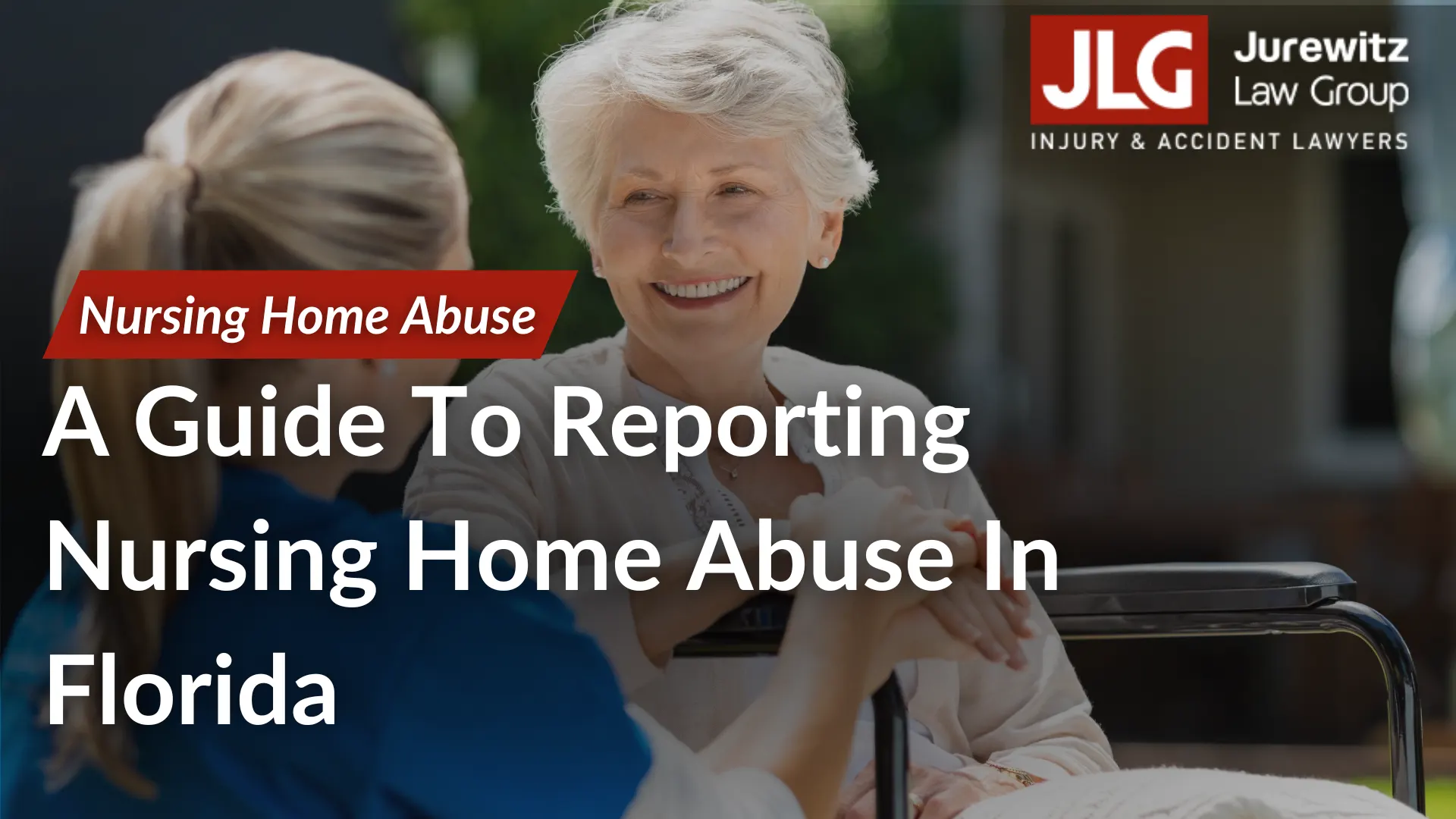
Few experiences are more stressful than suspecting a loved one is a victim of nursing home abuse or neglect. If you believe a Florida nursing home resident is a victim, it’s important to report your concerns properly. In addition, victims should know about their rights to compensation after Florida nursing home abuse reporting.
Signs of Nursing Home Abuse and Neglect
What should you look for before you do Florida nursing home abuse reporting? A victim of nursing home abuse or neglect may not necessarily call attention to their experiences. In some instances, victims don’t even realize they are being mistreated. For instance, an elderly person with cognitive limitations or memory issues might have difficulty understanding and expressing the nature of the abuse they may be experiencing.
Potential signs of nursing home abuse and neglect are wide-ranging. For example, these include:
- Dehydration
- Malnutrition
- Sudden changes in weight (which can include rapidly putting on weight)
- Changes in mood
- Unexplained bruises, broken bones, or other injuries (potentially including bruising near sexual organs or body parts)
- Bedsores
- Fear, particularly fear that seems more apparent in the presence of certain staff members
- Loss of money or other changes in finances (such as major withdrawals from bank accounts)
- Isolation from others
None of these signs guarantee nursing home abuse is occurring. Speak with the individual who may be a victim to learn more about their experiences.
The fact that they don’t admit abuse or neglect is occurring doesn’t mean there’s no reason for concern. They may be too afraid to honestly discuss their experiences. Again, they also might not understand them. Investigate the matter further if you still believe the staff at a nursing home is abusing or neglecting a loved one.
Legal Action Against Nursing Home Florida
Florida nursing home abuse reporting has several steps to follow. For instance, some of the steps to take when you have strong reason to believe nursing home abuse or neglect is occurring include:
- Reporting your concerns to the nursing home’s administrator
- Reporting your concerns to the police
- Contacting the Florida Department of Elder Affairs by calling the elder abuse hotline (more on this in the next section of the blog)
Remove your loved one from the nursing home facility as soon as possible. In addition, bring them to a doctor for an examination. They may have sustained injuries or harm you’re unaware of.
If abuse or neglect has occurred, the victim may be eligible for financial compensation. Pursuing compensation typically involves filing an insurance claim. Consequently, filing a lawsuit is an option when the insurance company denies liability or refuses to offer a fair settlement.
An elderly person who’s been the victim of nursing home abuse or neglect may be eligible to receive compensation for a variety of losses. Examples include:
- Economic losses – Economic losses for which a victim may receive compensation could include medical care expenses (and related costs, like the cost of traveling to medical appointments) and loss of money resulting from financial exploitation and abuse.
- Non-economic losses – Non-economic losses are intangible losses like pain and suffering. They don’t have exact dollar values like economic losses do. However, a victim of nursing home abuse and neglect may still be eligible to receive compensation for such losses.
Florida Nursing Home Abuse Reporting: Call the Elder Abuse Hotline in Florida
Protecting resident rights in Florida nursing homes is among the functions of the Florida Department of Children and Families. If you suspect a vulnerable adult or elderly person is the victim of abuse or neglect in a nursing home, you may call their abuse hotline at 1-800-962-2873. When prompted, press 2 to report suspected abuse of an elderly person. You may also file a report with the Florida Adult Protective Services online.
The Florida Department of Children and Families wants callers to know the hotline is not for emergencies. Call 911 if you believe a nursing home resident is in immediate danger.
Reporting Elder Abuse in Florida: Information You Need
How to report nursing home neglect Florida? Per the Florida Department of Children and Families, you will need certain information on hand when reporting suspected nursing home abuse or neglect. For instance, information you may need includes:
- The alleged victim’s name, sex, location, race, and age (an approximate age is acceptable if you don’t know the victim’s exact age)
- A general description of why you believe the alleged victim is unable to care for themselves or address these matters themselves
- A description of the signs or changes you’ve noticed that you believe indicate abuse or neglect has occurred
In addition, you will also need to describe the relationship between the victim and the alleged perpetrator of abuse. In these circumstances, you typically don’t need to place the blame on one particular individual if you don’t know who exactly has committed abuse or neglect. The nursing home is the responsible party.
The Statute of Limitations for a Nursing Home Abuse and Neglect Lawsuit in Florida

Florida nursing home abuse reporting requires acting fast. Doing so is essential when you believe a nursing home resident is the victim of abuse or neglect. You may also need to act fast when pursuing compensation. The statute of limitations for filing a nursing home abuse or neglect lawsuit in Florida is two years from the date the abuse occurred, or you became aware of it. A victim may not be eligible to receive compensation if they miss the filing deadline.
Before taking legal action in a nursing home case, Florida law also requires plaintiffs to notify all potential defendants. Both defendants and their insurers have 75 days to review the allegations. You may not file a complaint during this 75-day period.
Nursing Home Regulations and Compliance in Florida
Florida law establishes the rights of nursing home residents and the standards of care by which long-term care facilities and nursing homes must abide. The law also establishes when a victim may seek punitive damages. These are damages a jury may award on top of compensation. Punitive damages may be available if a victim can show either of the following:
- A defendant “actively and knowingly participated in intentional misconduct”
- A defendant “engaged in conduct that constitutes gross negligence and contributed to the loss, damages, or injury suffered by the” victim
Juries award punitive damages to punish defendants. Doing so may deter them from engaging in similar misconduct in the future.
Contact a Florida Nursing Home Abuse and Neglect Lawyer
What else should you know about Florida nursing home abuse reporting? You don’t have to shoulder the experience alone when you believe a loved one is the victim of nursing home abuse or neglect in Florida. At Jurewitz Law Group Injury & Accident Lawyers, a Tampa elder abuse lawyer can help you and your loved one pursue justice. Learn more by contacting us online or calling us at (619) 233-5020 for a free case review. Our team of nursing home abuse attorneys can use our experience and skills to get you the best possible outcome for your claims.


